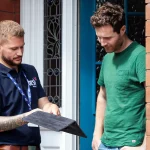BT Win £26m Deal to Link 650 Primary Schools with Gigabit Broadband

Telecoms giant BT has today announced that they’ve secured a state-aid supported £26m contract under the UK Government’s £5bn Project Gigabit programme, which will see them connect over 650 primary schools in hard-to-reach (rural) places across England with gigabit broadband using full fibre technology.
In case anybody has forgotten. In March 2022 the government pledged to ensure that “every school across the country” would be able to access “high speed internet” by 2025 (here and here), which would harness a mix of public investment from both the Department for Education (DfE) and the Department for Science, Innovation and Technology (DSIT).
The Schools Gigabit Connectivity Project has since been making steady progress, and today’s deal with BT to connect 650 additional schools will no doubt have a big impact. The schools covered by this agreement are said to be located in both rural and urban settings that are difficult to reach under commercial broadband roll out schemes.
Advertisement
BT, working closely with infrastructure supplier Openreach, plan to reach the sites using “full fibre broadband” (it’s unclear if we’re talking about FTTP or optical Ethernet / leased lines) capable of delivering in excess of 1,000 Megabits per second. The schools are based across South West, North, South East and East England, as well as London.
Ashish Gupta, BT’s MD of Corporate and Public Sector, said:
“This project marks a milestone moment for hundreds of schools across England, and we’re proud to play such a central role in making it happen.
Access to high speed, reliable broadband is vital in the modern world and underpins so much of our daily lives. Nowhere is this more important than education. This investment will transform the learning experience for thousands of pupils, opening up opportunities for interactive lessons, collaborative projects with other schools and pupils anywhere in the world, as well access to an expanding online library of educational content and video.
Working with Openreach, we will be connecting the schools with lightning-fast broadband in phases over the next two years, with an ambition to complete delivery by Dec 2025.”
Julia Lopez MP, Digital Infrastructure Minister, said:
“Today’s classrooms have been transformed by the internet, with children able to access an endless library of incredible resources to boost their learning.
We need to make sure every pupil can benefit from these exciting digital experiences, so we’re investing millions to bring top-of-the-range broadband to schools in places that would otherwise have been stuck in the digital slow lane.
This is just one way our £5 billion Project Gigabit programme is putting a stop to buffering broadband in hard-to-reach communities, with more than a million mostly rural premises already able to access lightning-fast gigabit speeds thanks to government subsidy.”
According to the last quarterly progress update from the Project Gigabit programme in December 2023 (here), the government – via the Building Digital UK (BDUK) agency – expected that more than 800 schools would be in scope of their procurement to help improve connectivity in England. Delivery of this effort was “expected to start in early 2024 and complete by March 2026“. Suffice to say that BT’s deal accounts for the vast majority of that target.
Mark is a professional technology writer, IT consultant and computer engineer from Dorset (England), he also founded ISPreview in 1999 and enjoys analysing the latest telecoms and broadband developments. Find me on X (Twitter), Mastodon, Facebook, BlueSky, Threads.net and Linkedin.
« ISP Virgin Media Business Launch Spring Broadband Sale for SMEs






















































£40k per primary school for installation only (school then picks a compliant ISP) Same school that probably struggles to balance budgets / pay for repairs
Astonished
given that BT have announced the contract rather than Openreach, it follows that BT are going to be the ISP. Unsure what your point is in regards to school budgets.
I wonder if this will also mean a sudden improvement in FTTP availability for premises near those schools.
I dont see your point. A business gigabit connection is only around £40 a month. School kids nowadays heavily rely on computers so this will help their development and education. Would be easily worth it for the school and children.
This is part funded by Dept of Education so yes impacts school budgets!
To quote document:
“ The programme will use what is called FTTP (fibre to the premises) in most cases to provide the connection. Where it is not possible to do this economically, DfE will procure an alternative using other technologies such as satellite or 5G”
“ The programme is providing the physical broadband connection and not the service that runs over it. The school will still need to procure an appropriate service package with a service provider. The school should select a service that meets their requirements for Safeguarding”
fair enough. It’s worth pointing out that the schools will already have an internet connection of some kind – is any school offline? – so the budget would shift from ADSL to whatever is provided here.
I find it amusing that they sell it as “gigabit” but then the DfE cops out by saying 5G is an option (unlikely in these locations) or even satellite (not even starlink gets close)
At a guess (and this is only a guess), I’d say this is a leased line network rather than a fibre-to-the-home type service.
£500 per month on a 5 year contract, plus £10K ECCs, makes £40K total contract value.
If true, it means that the school is lumbered with a £6K per year service for ever; and no neighbouring properties benefit from FTTP availability.
I’m sure they won’t be milking it to the bank 😉
I’m sure they’ll be NO improvement to FTTP near the school for the public. It’s another subsidy/handout for that isn’t it, why get one handout when you can get 2?
interesting a significant number of these schools will either in villages where part of the village might already be connected or be in village where fibre or infrastructure is either current or proposed already
it will also depend on how the bid spec was written as well to whether anything was included some bid specs are very silo’d and you can get penalised for being innovative
Working with Openreach, we will be connecting the schools with lightning-fast broadband in phases over the next two years, with an ambition to complete delivery by Dec 2025. (alright for some! Nothing for peoples who suffering ADSL homes area only)
Classic set of ISPReview comments here…
A mixture of “but what about me” and “how much?” outrage.
I’m not sure what you expect when FTTP provision is still such a postcode lottery? Find out when my town goes on the openreach rollout is one of my main reasons to check this site regularly. Right now Openreach in my vicinity have covered one tiny town, in process of rolling out to a middling sized town, have a village scheduled for next but my small town isn’t even on the list yet. This is bound to cause upset. (Heck its even worse in my town as Trooli picked about 3 quarters of the streets to cover (and then piecemeal). Its no wonder people like me wonder when they’ll finally get coverage (and complain when left out once again).
Going back to the story it would be interesting to see if the schools in my town will get covered but I can’t find a list… No Openreach fibre near any of the schools according to thinkbroadband.
Trooli! lol even more patchwork than Netomnia!
The comments do frequently seem like some miserable old so and so in the pub, nursing that warm pint he purchased 3 hours ago telling everyone it wasn’t like this when I were a lad
£40k a school. Have they not heard of LTE/satellite?
Usual mentality of it’s somebody else’s money.
Just disgusting waste.
40k per school *and likely surrounding properties*. No different to gigabit vouchers really, but spun as “think of the children”. If Openreach get fibre into the village for the school then it suddenly becomes more realistic to enable most/all of it for FTTP too.
Can Satellite downlinks be “Bonded” to make, in aggregate, a faster link ?
If they can , Starlink may be cheaper for the schools.
No worries by the time OpenReach/BT get round to doing anything we’ll all be using sub-space comms anyway.
They’re passing a million premises every three months.
Who’s going even nearly as quick?
Sub-space comms doesn’t stand a chance of competing with fibre for aggregate bandwidth.
Scotty had a phrase for why.
It will remain a very useful interim solution for many locations, and a long-term one for fewer.
Haven’t built to the poster therefore they’re doing nothing. Standard.
Is a list of the 650 schools, or towns/villages those schools are in?
Just for information on this from a school perspective. Example here from actual quotes…
The picture in schools is far more complex by the time you add in not just the line, filtering, firewall etc it becomes really expensive (not bleating here but fact). Schools can only use some providers and there is and not an open market position for them as they/we have to follow DfE guidelines etc..etc..
So as an example on an adsl 80 (lucky together 60) and filtering costs with RM (Research Machines one if the biggest providers that relies on Talk Talk or BT for lines) is circa £2900 per year. Not much of a difference with Gigaclear (100 not 1000 as this is closer to 5k per year) with filtering from another company is circa £2800 and schools have to have at least a 3 year contract to get the discounted prices (as shown) otherwise it is higher. These are for a primary school,with 40 staff and 250 children, not a secondary
Where 4G/5G are concerned the bandwidth is not really there for use especially in some areas so not an option really but could be in some other areas.
For us to go to 200 it is approx 3k with Gigaclear and filtering…
It would be good and help schools if they (whoever) had the grants provided the line/fibre to schools whilst using the opportunity to provide to the local areas.at the same time win for everyone??
Just a perspective and thought..
40k per School, that’s crazy money!
Just order a star link for each school!
Well you clearly have no idea how anything works do you